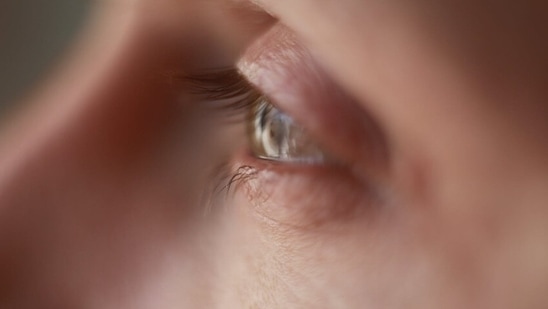Understanding Glaucoma: The Silent Thief of Sight
Glaucoma is a significant eye condition that can lead to irreversible vision loss if not detected and treated in its early stages. Known as the "silent thief of sight," this condition often sneaks up on individuals, damaging the optic nerve—the critical link between the eye and the brain—primarily due to elevated intraocular pressure.
What Are the Symptoms of Glaucoma?
In a recent discussion, Dr. Payal Gupta, a Consultant Ophthalmologist at Fortis Hospital in Greater Noida, shed light on this crucial topic. According to her, “Glaucoma often remains asymptomatic during its early stages, making it particularly dangerous."
Recognizing the Red Flags
While many may not experience noticeable symptoms initially, some individuals report:
- Headaches
- Blurring of Vision
- Eye Pain and Redness
- Colored Halos around Lights

Loss of peripheral vision: A potential early sign of glaucoma, often resulting from elevated eye pressure. (Pexels)
As glaucoma progresses, patients may notice that changes to their vision often occur after forty percent of optic nerve damage has occurred. Dr. Gupta emphasizes, “Unfortunately, damage to the retinal and optic nerve fibers caused by glaucoma is irreversible. Once vision is lost, no treatment can restore it.”
How Can We Combat Glaucoma?
Early Detection: The Key to Preservation
Dr. Gupta asserts the paramount importance of early detection in preventing blindness due to glaucoma. “Most treatment strategies focus on slowing the progression of damage rather than reversing visual field loss. Thus, the earlier it is diagnosed, the easier it is to halt its progression," she notes.
What Does a Glaucoma Screening Involve?
Dr. Gupta explains that glaucoma screening is vital, even for seemingly healthy individuals. The screening includes:
- Measurement of Eye Pressure
- Clinical Examination of the Eye and Optic Nerve
- Imaging of the Nerve Fiber Layer
- Visual Field Analysis
These non-invasive tests require neither blood samples nor exposure to radiation, making them accessible for all.

Glaucoma, if left untreated, can lead to permanent blindness. (Unsplash)
Dr. Gupta recommends that everyone over 40, especially those with a family history of glaucoma, should undergo regular screening with an ophthalmologist.
Treatment Options for Glaucoma
Dr. Gupta shares that initial treatments typically involve prescription eye drops. In some instances, laser treatments may be necessary. If these methods fail to halt the progression, surgical intervention may be required as a last resort.
Conclusion: Protect Your Sight
Glaucoma is a serious yet manageable eye condition. Through routine eye examinations, individuals can catch potential issues early and protect their vision against this silent threat.
Note to Readers: This article serves as informational content and should not be considered a substitute for professional medical advice. Always consult with a healthcare provider regarding any health-related inquiries.
By understanding glaucoma and recognizing the importance of early detection and treatment, we can help safeguard our most precious asset—our sight. For more information on glaucoma and eye health, consider visiting the American Academy of Ophthalmology or your local ophthalmologist.






